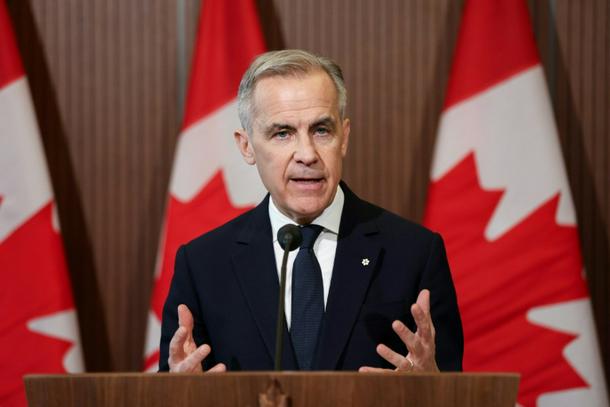
Canadian PM Mark Carney announced 25 percent tariffs on all vehicles imported from the United States that are not compliant with a free trade agreement
Ottawa (AFP) - Canada said it would impose a 25 percent tariff on tens of thousands of vehicles imported from the United States, retaliating against US President Donald Trump’s levies that came into effect on Thursday.
Prime Minister Mark Carney announced “25 percent tariffs on all vehicles imported from the United States that are not compliant with CUSMA,” using the Canadian acronym for an existing North American free trade agreement.
The tariffs on Can$35.6 billion (US$25.3 billion) worth of US vehicles are to come into force in the coming days, his office told AFP.
The Canadian tariffs will impact cars and light trucks that are made with less than 75 percent North American parts – roughly 10 percent of all vehicles shipped from the United States to Canada, or about 67,000 vehicles annually.
Canada was largely spared from the sweeping global tariffs Trump announced Wednesday, as Washington granted an exemption to goods compliant with the US-Canada-Mexico free trade agreement, which covers most products.
But Canada, which is one of America’s largest trading partners, is still facing tariffs on steel, aluminum and other products, in addition to the levies on automobiles.
Carney said Trump’s trade war “will rupture the global economy.”
“The system of global trade anchored in the United States that Canada has relied on since the end of the Second World War… is over,” Carney said.
“The 80-year period when the United States embraced the mantle of global economic leadership, forged alliances rooted in trust and mutual respect, championed the free and open exchange of goods and services is over,” he added, calling the development “a tragedy.”
Ottawa has previously imposed retaliatory tariffs on Can$30 billion worth of US consumer goods and nearly Can$30 billion of US steel and aluminum imports into Canada.
Carney and Trump spoke by phone last week. They agreed Washington and Ottawa should negotiate the future of bilateral trade after Canada’s April 28 election.